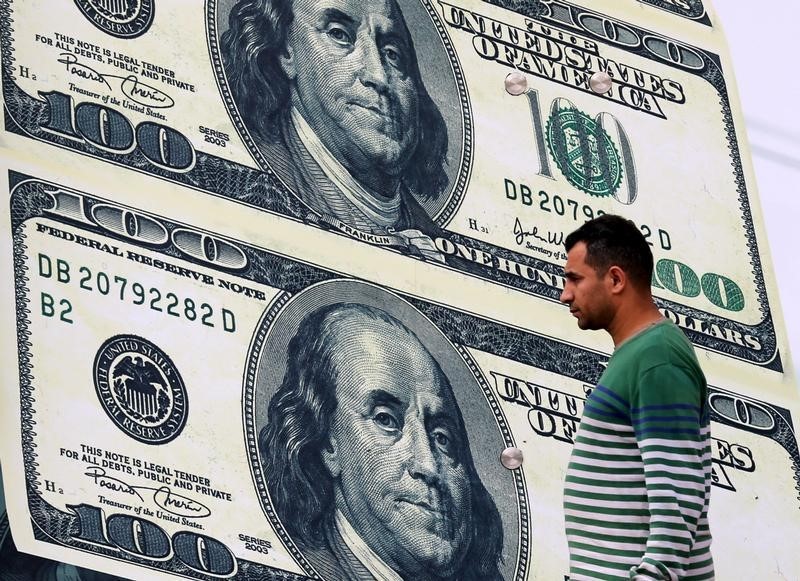By Peter Nurse
Investing.com - The dollar edged higher in early European trading Friday, but remains anchored near two-week lows following disappointing jobless figures and with the Federal Reserve showing no signs for changing its ultra easy monetary policy stance.
At 2:55 AM ET (0755 GMT), the Dollar Index, which tracks the greenback against a basket of six other currencies, was up 0.2% at 92.278, after dipping as low as 92.037 earlier Friday for the first time since March 23. The index has dropped around 0.8% this week, the largest fall so far this calendar year.
USD/JPY rose 0.2% at 109.47, EUR/USD dropped 0.2% to 1.1888, but remains over 1% up this week, while the risk-sensitive AUD/USD fell 0.7% to 0.7595, after a warning from Australia's central bank of excessive lending risk.
Rising Treasury yields amid expectations that a strong economic recovery and rising inflation would force the Federal Reserve to rein in its ultra easy monetary policies sooner than originally thought led to substantial dollar gains last quarter.
However, this tone has changed of late. The weekly initial jobless claims figures on Thursday actually showed U.S. unemployment unexpectedly rose last week, while the minutes for the U.S. central bank’s last meeting showed that the officials remained committed to monetary policy support for some time to come.
Fed Chair Jerome Powell continued the theme at a virtual International Monetary Fund conference on Thursday, stating policy wouldn't shift until there was a prolonged spell of strong economic data, while board member James Bullard said the Fed should not even discuss changes until it is clear the pandemic is over.
“We expect the very accommodative Fed to eventually weigh on USD as we move into the summer,” said analysts at ING, in a note.
Elsewhere, GBP/USD fell 0.4% to 1.3674, with sterling hurt by growing concerns about Britain's reliance on AstraZeneca (NASDAQ:AZN)'s vaccine to continue its successful vaccination program.
The vaccine has been plagued by safety concerns amid links to very rare blood clotting issues. Both EU and British medical regulators have declared this week that the benefits of the drug still outweigh the risks, but a number of countries have restricted its use. The U.K. itself has recommended other vaccines should be used, where possible, with younger people.
“GBP is currently the largest speculative long in the G10 FX space based on CFTC data,” added ING, “which clearly exaggerated [the] impact of vaccination concerns.”
Additionally, USD/CNY rose 0.1% to 6.5569 after China released stronger-than-expected March consumer and producer price indexes data earlier in the day. The CPI grew 0.4% year-on-year and the PPI grew 4.4%, its fastest rate in over two and a half years.
